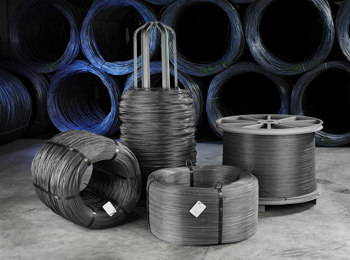Different Types of Sports Shoes Choosing the Right Pair for Every Activity
In the world of athletic footwear, choosing the right pair of sports shoes can significantly enhance your performance and provide the necessary support and comfort for your specific activity. With a multitude of options available in the market, understanding the different types of sports shoes can help athletes, fitness enthusiasts, and casual users make informed choices. Here’s a comprehensive overview of various types of sports shoes and their unique features.
1. Running Shoes
Running shoes are designed primarily for runners, with features that support movement dynamics and different types of pavement. They offer cushioning and stability while allowing the foot to move naturally. There are several sub-types, including
- Neutral Running Shoes For runners with a neutral gait, these provide balanced cushioning and support. - Stability Running Shoes Ideal for those who overpronate, these shoes offer extra support to prevent the foot from rolling inward excessively. - Trail Running Shoes Made for off-road conditions, they feature rugged outsoles for better traction and enhanced durability.
2. Training Shoes
Training shoes are perfect for versatile workouts, including weightlifting, circuit training, and aerobics. They tend to have a flatter sole compared to running shoes, which offers better stability during lateral movements. The design prioritizes durability and support, accommodating various activities in a single workout session.
Basketball shoes are designed to provide ankle support, cushioning, and traction on the court. They typically come in high-top designs to support the ankle, while the midsole is often equipped with responsive cushioning to absorb impact when jumping. The outsoles are made from rubber with a herringbone tread pattern for optimal grip during agile movements.
4. Soccer Cleats
Soccer cleats are specially designed for the sport, aiming to enhance speed, agility, and control. They feature a lightweight design and come in various stud patterns, which can be molded or detachable depending on the playing surface. The upper part is often made of synthetic materials or leather for better ball control.
different types of sports shoes

5. Crossfit Shoes
Crossfit shoes focus on multifunctionality, providing a blend of comfort and stability. They are built to handle various types of training, including weightlifting, running, and gymnastic movements. Often featuring a firm heel and flexibility in the forefoot, they allow for optimal power transfer while performing lifts and speed during sprints.
6. Hiking Shoes
Hiking shoes are constructed to offer support and stability on uneven terrain. They often come with enhanced traction and water-resistant features, providing durability in outdoor conditions. There are three primary types of hiking footwear
- Trail Runners Lightweight and flexible, suitable for fast-paced hikes on established trails. - Hiking Shoes Mid-cut shoes designed for light to moderate trekking, offering a combination of comfort and grip. - Hiking Boots More robust and supportive, ideal for challenging terrain or heavy loads.
7. Tennis Shoes
Tennis shoes cater to the specific movements involved in playing the sport, such as lateral motion, quick sprints, and sudden stops. They are equipped with a non-marking rubber outsole, providing enhanced traction and durability on court surfaces. The cushioning also helps in reducing impact on the joints.
8. Golf Shoes
Golf shoes are designed to provide stability and traction during swings. They are generally waterproof and feature spikes or a spikeless design to maintain grip on the grass. The shoes ensure comfort for walking long distances on the course while offering support during swings.
Conclusion
When choosing sports shoes, it’s essential to consider the activity you’ll be engaging in regularly. Each type of sports shoe is engineered with specific features that cater to the needs of that sport, whether it’s cushioning for running, traction for soccer, or support for weightlifting. Additionally, factors such as foot type, personal style, and comfort preferences should play a significant role in the decision-making process. Investing in the right pair of sports shoes not only enhances performance but also helps prevent injuries, making it a vital aspect of any athlete's or fitness enthusiast's gear. So, whether you’re hitting the pavement, the gym, or the trails, there’s a perfect pair of sports shoes waiting for you!
-
Stay Dry in Any Condition with WadersNewsJul.17,2025
-
Elite Performance with Camouflage Combat BootsNewsJul.17,2025
-
Dry and Comfortable with Green Rubber Garden ShoesNewsJul.17,2025
-
Convenient Protection with Foldable RainbootsNewsJul.17,2025
-
Comfort and Protection with Neoprene Work BootsNewsJul.17,2025
-
Brighten Rainy Days with Floral Rain BootsNewsJul.17,2025
-
Safety Wellies: The Ultimate Combination of Protection, Comfort, and VisibilityNewsJun.19,2025











